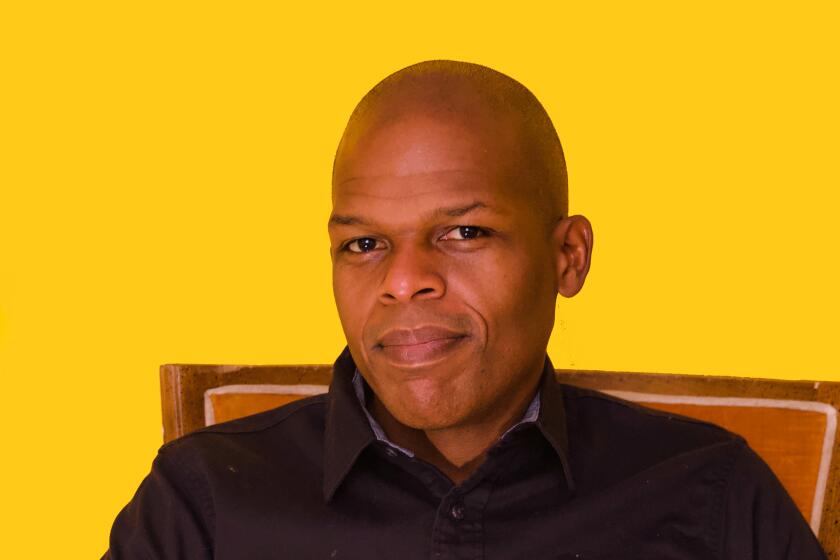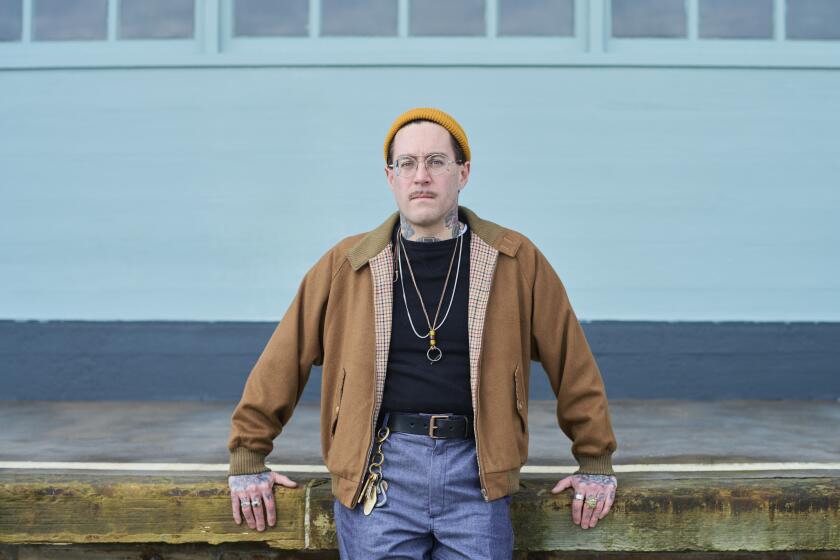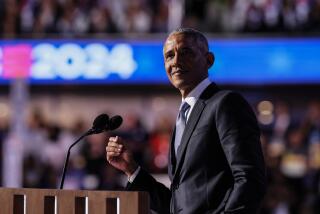An Obama campaign staffer stars in the shimmering autobiographical novel ‘Great Expectations’
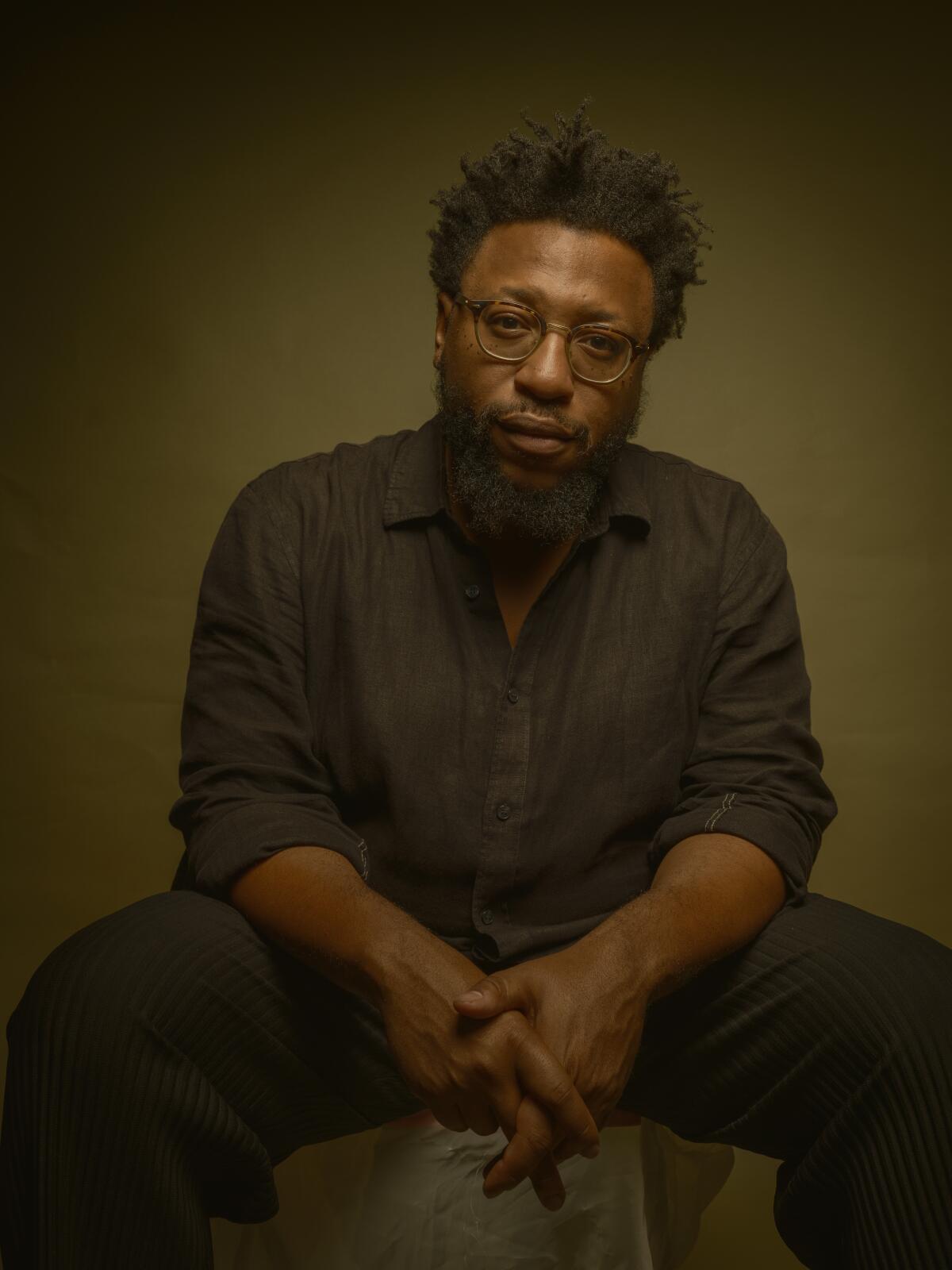
Book review
Great Expectations
By Vinson Cunningham
Hogarth Press: 272 pages, $28
If you buy books linked on our site, The Times may earn a commission from Bookshop.org, whose fees support independent bookstores.
It’s ambitious to name your debut novel “Great Expectations.” Regardless of the immediate reference to Dickens’ classic coming-of-age novel, you’re establishing high stakes for yourself. That said, go bold or go home? New Yorker magazine staff writer and theater critic Vinson Cunningham takes that risk with his highly autobiographical and vividly rendered novel, “Great Expectations.”
After flunking out of college in Vermont, our narrator David is unmoored. In his early 20s, he’s lost the religion of his youth and has returned to his mother’s apartment “just south of Columbia University, in those blocks between 100th and 110th where the Upper West Side starts its soft melting into Morningside Heights.” He’s a young father, estranged from his daughter’s mother who also returned home from college to New York City. As David struggles to take classes at City University and hold down work as a tutor, his youthful potential feels like a memory. Despite all this, that shine is not entirely lost.
The writer’s ambitious approach to the historical novel uses techniques reminiscent of “The Handmaid’s Tale” to examine the shifting meaning of freedom.
At the book’s opening, David recalls: “I sat alone, hollering distance from the northern woods of Central Park, watching the Senator on TV.” He is watching the kickoff speech to Barack Obama’s 2008 presidential campaign. While Cunningham never uses his name, it’s clear from both the broad strokes as well as the details that this is the future 44th president. “He spoke before the pillars of the Illinois statehouse, where, something like a century and a half earlier, Abraham Lincoln had performed the same ritual,” observes David. “The Senator brought his elegant wife and young daughters on stage when he made his entrance. A song by U2 played as they waved.”
It’s with this launch that Cunningham begins to show two individuals poised to begin a great journey. For a period of time, their paths will entwine. Both men face unbelievable odds, and both stick to a course that leads to the White House. The book shares this heady tension of aspiration, charisma, optimism, unbelievable timing and intellectual curiosity as well as a yearning for connection.
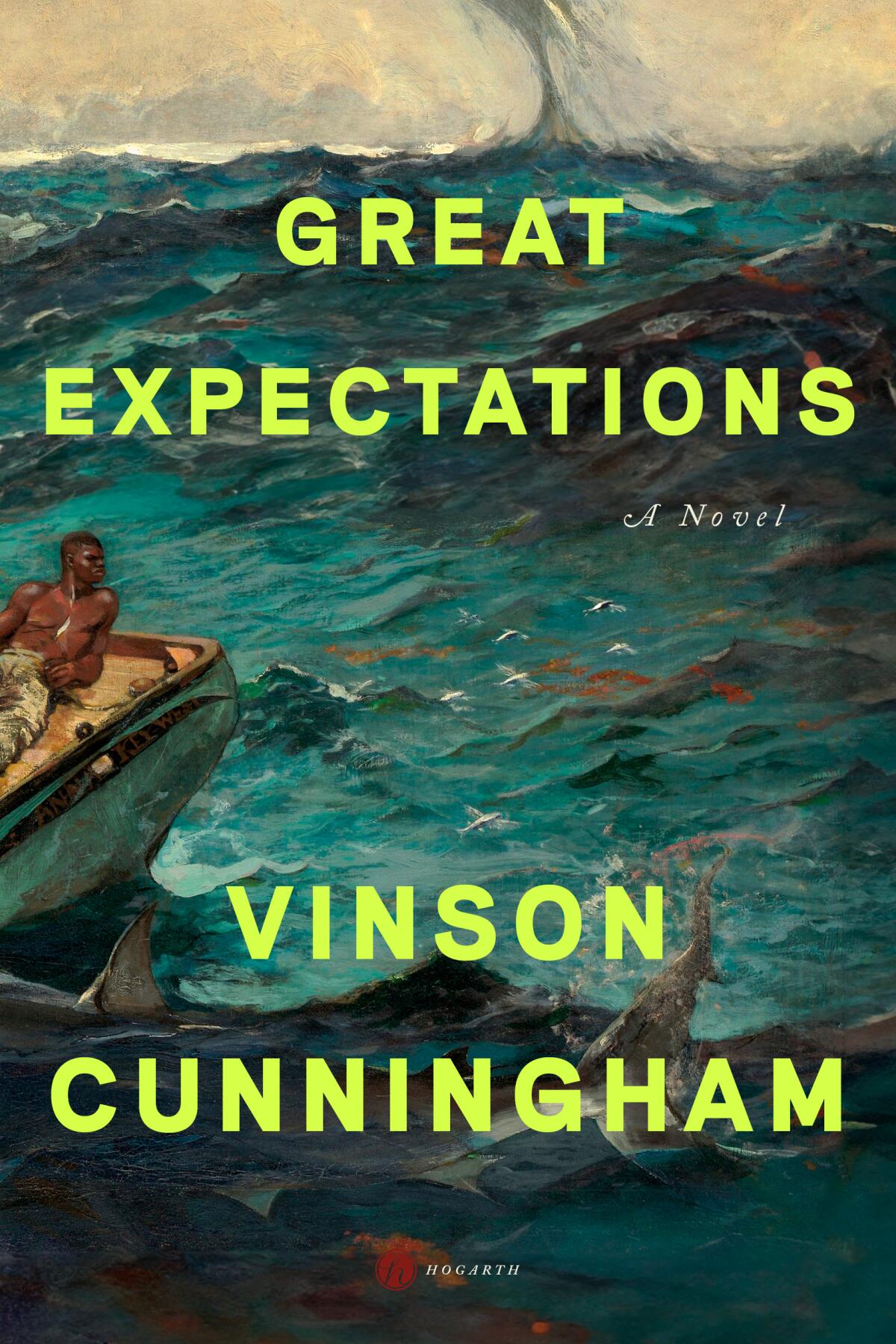
David may be lost, but he’s not forgotten. “Despite myself, and not without some reservations, I find that I do believe in luck, in flukes, in the meaningless harmony of certain sequences,” he observes. “Take the one whereby I landed on the Senator’s campaign, only a month or so after watching his big speech.” Beverly, who “had once appeared on the cover of Black Enterprise magazine” and was board member of his high school, “where people still vaguely remembered and liked me,” has hired him as a tutor for her teenage son, after hearing that he had “strayed from the path.” Quickly sensing that David was overqualified and understimulated, Beverly offers him an irresistible opportunity. The Senator’s campaign was looking for “anybody young and competent,” and with questions that serve more as statements, she lands him an interview with the campaign which quickly leads to a job with the fundraising committee.
This momentum steadily carries David through the book. Grounded in his thoughts, he’s a serious and considerate young man. His observations — of colleagues (“Everybody here dressed like a banker or a lawyer. I’d worn my boxy black suit with a slight shine at the elbows”), of donors (“I could tell this made him like me more. He’d helped make me”), of immigrants (“When I told him how much this guy has changed throughout his life, like walked him through how much effort this guy has put into himself — that’s what won him over”) — weave the story of a period of hope. In the wake of a campaign event introduction from Cornel West, David muses, not ironically, that “This candidacy was a rare instance of ‘radical love’ made real.” It’s funny to look back and say that 2007 was a simpler time, but 17 ragged years later, it’s easy to recognize that we live in a more cynical world. David’s journey brings us back to that moment through the encounters that maintained the campaign’s financial backbone.
And yet, what’s compelling is that David’s innocence is not spotless. His rush to adulthood (lost opportunities, early fatherhood) forced him to see difficult truths. At his tender age, he yearns for the simplicity of religion and the church songs he sang with his late father, whose death (“in a small hospital downtown, where nuns stood watch over the political deaths of plague victims”) was shrouded in silence. After his death “the world kept rushing on. On the night of his funeral, I wrote a song.” Is it no wonder this is a person in need of a hero?
Matt Lodder’s “Painted People: 5,000 Years of Tattooed History from Sailors and Socialites to Mummies and Kings” is a lively exploration of an underexamined art.
Gripped with this longing, Cunningham takes a cinematic, fast-paced story and infuses it with the texture of humanity. His ability to make art and find beauty in the smallest moments is the work of not just a skilled novelist but a soulful critic. Of Central Park, David muses, “It had always struck me as a place to be lost, experienced passage by passage, in a series of unfolding images — not something you could take in in one possessive glance.” Life, as well as fiction, is so often at its best when one surrenders to being lost. Though alchemy happens through an accumulation of details, life is lived in the moment.
However, such keen, intimate details raise questions of access and research. A cursory glance at Cunningham’s biography reveals that he also worked on the Obama campaign as well as for the administration. Beyond that, his life shares considerable overlap with David’s. Such proximity to history leads you to wonder why Cunningham didn’t choose to write a memoir.
But, again, there’s an expansiveness about fiction that elevates ideas and possibilities over a strict adherence to facts and truth. We could draw from our memories to resurrect a documentary-style recollection of the first Obama presidential campaign. Yet what surfaces from this novel is much more than the sum of its shimmering details, hence the benefit of working outside memoir. David echoes this reasoning, admitting: “I was less interested in the campaign’s plot than in how I was supposed to interpret it. Less in its details than in its coded total meaning.”
We too look at the coded total meaning that binds David to this journey. Cunningham’s attention to subtle, shared mysteries of life speaks more than a blow-by-blow analysis of this historical moment. The author cuts to the bone when David admits, “I wanted to be real in a way that history wasn’t, and realized, listening to the new president, that I didn’t yet know how, couldn’t fathom where to begin.” History is at its essence a collection of stories that speak to mythology, power and desire. When real life shifts into history, we lose a bit of ourselves. David — and Cunningham — explore the lives that coincide with history as Black men in America, as people endowed with faith, and as individuals who strive to surpass anyone’s wildest dreams.
Lauren LeBlanc is a board member of the National Book Critics Circle.
More to Read
A cure for the common opinion
Get thought-provoking perspectives with our weekly newsletter.
You may occasionally receive promotional content from the Los Angeles Times.
